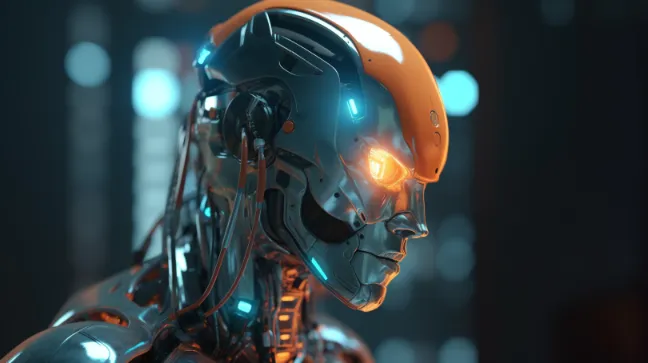Is AI good for the economy in The 2023 Financial Crisis?
Artificial intelligence (AI) is a rapidly growing field that has the potential to revolutionize the economy. AI refers to the ability of machines to simulate human intelligence and perform tasks that would normally require human intervention. In this article, we will explore the impact of AI on the economy and examine its pros and cons.
The Pros of AI on the Economy
AI has several positive impacts on the economy, including increased productivity and efficiency in industries. AI can automate repetitive tasks, allowing humans to focus on more complex and creative tasks. This leads to higher output levels and improved efficiency.
Additionally, AI has the potential to create new industries and job opportunities. For example, the development of AI has led to the creation of new jobs such as data analysts, machine learning engineers, and AI ethicists.
AI can also reduce operational costs for businesses by streamlining processes and reducing waste. Furthermore, AI can improve the quality of products and services by providing more accurate and personalized experiences to customers.
The Cons of AI on the Economy
While AI has several benefits, it also has some drawbacks. One of the most significant concerns is job displacement and loss of employment. As AI automates tasks, it can replace human workers, leading to unemployment. Another concern is the overreliance on AI technology.
This can lead to the loss of critical thinking skills and decision-making abilities in humans. Additionally, AI systems can be biased and discriminatory, perpetuating existing inequalities in society. Finally, there are security and privacy concerns associated with the use of AI, particularly in the context of data collection and storage.
The Future of AI in the Economy
As AI continues to grow and evolve, it is essential to balance the benefits and drawbacks of the technology. This requires careful regulation and ethical considerations in the use of AI. It is important to ensure that AI is used responsibly and does not perpetuate existing inequalities in society. There is also potential for collaboration between humans and AI, where humans can provide critical thinking skills and creativity, while AI can provide speed and efficiency. Predictions for the future of AI in the economy include increased automation, improved decision-making, and personalized experiences for customers.
Conclusion
In conclusion, AI has both pros and cons when it comes to its impact on the economy. While it can increase productivity and efficiency, create new job opportunities, and improve the quality of products and services, it can also lead to job displacement, overreliance on technology, bias and discrimination, and security and privacy concerns. It is crucial to balance these benefits and drawbacks and use AI responsibly and ethically. As the field of AI continues to grow and evolve, it is essential to consider its impact on the economy and society as a whole.






